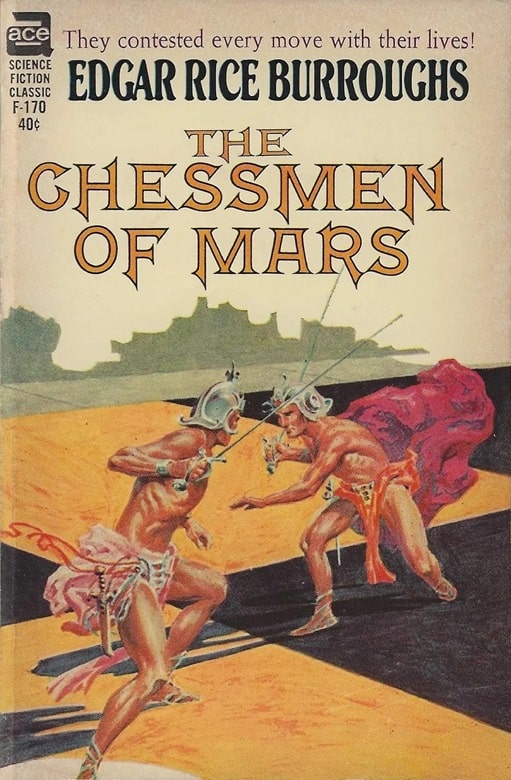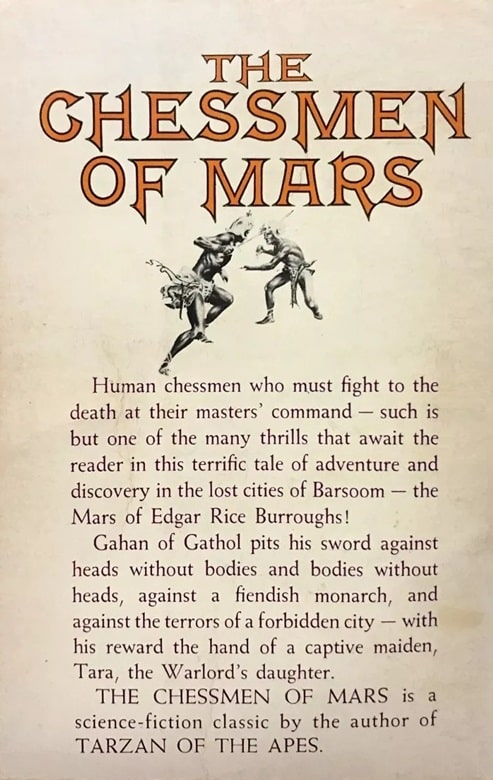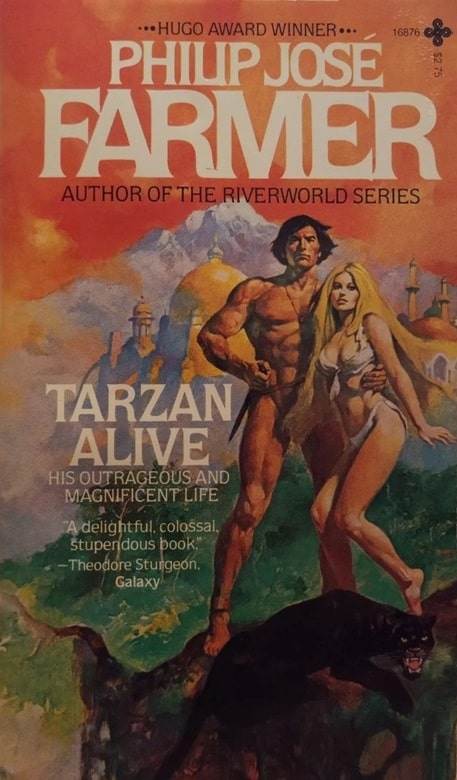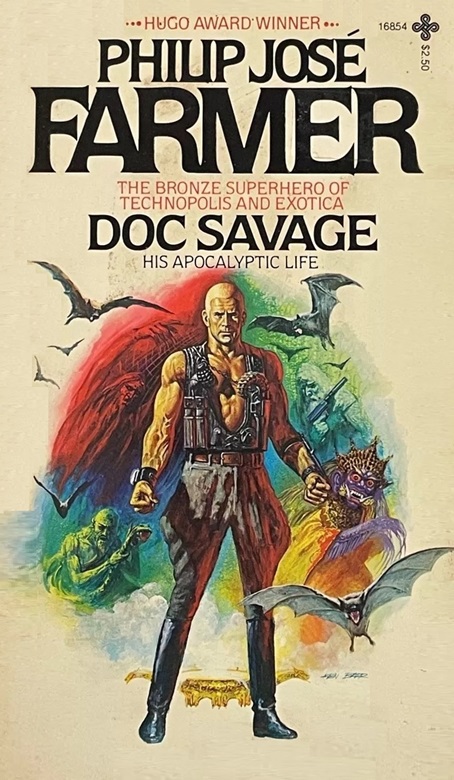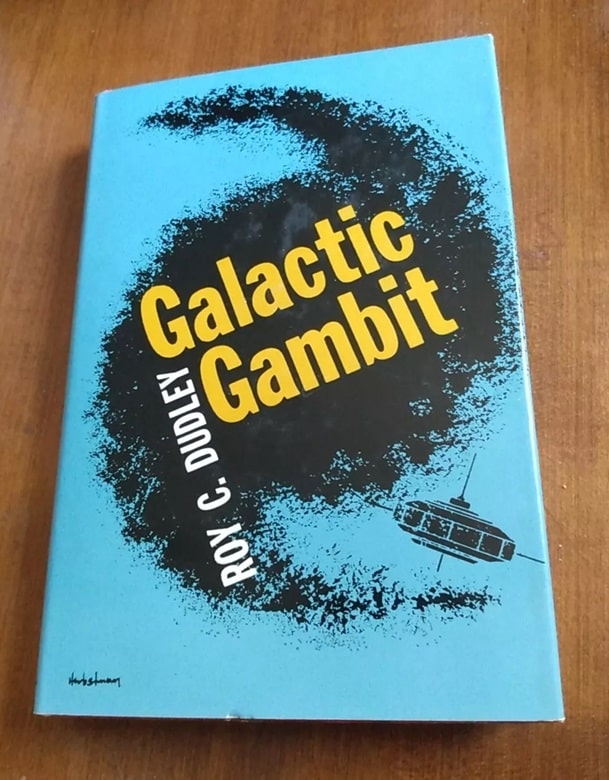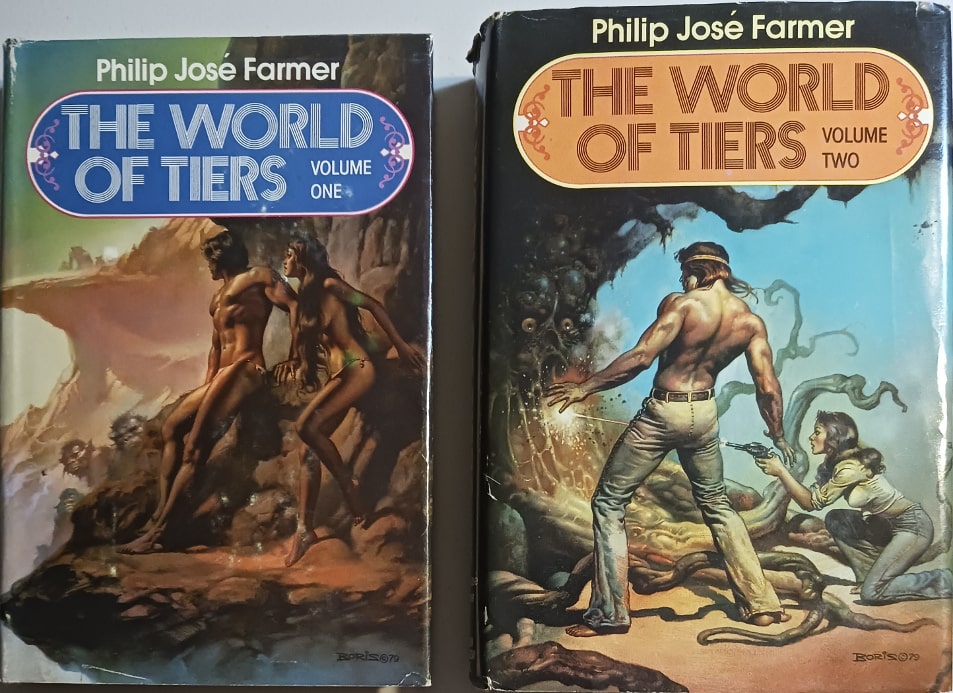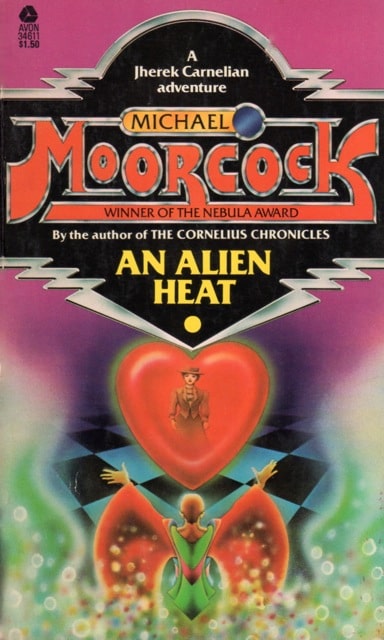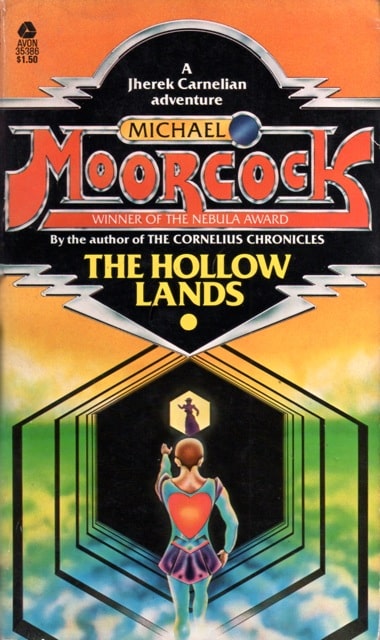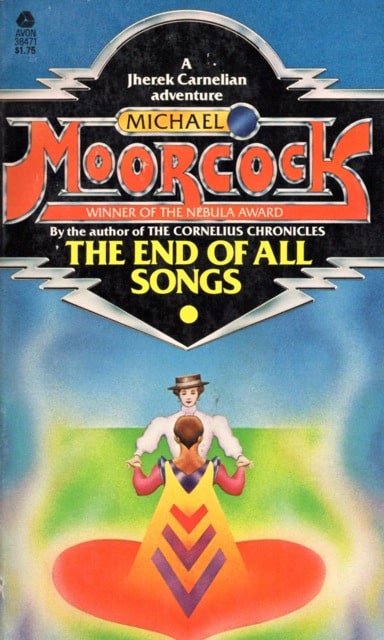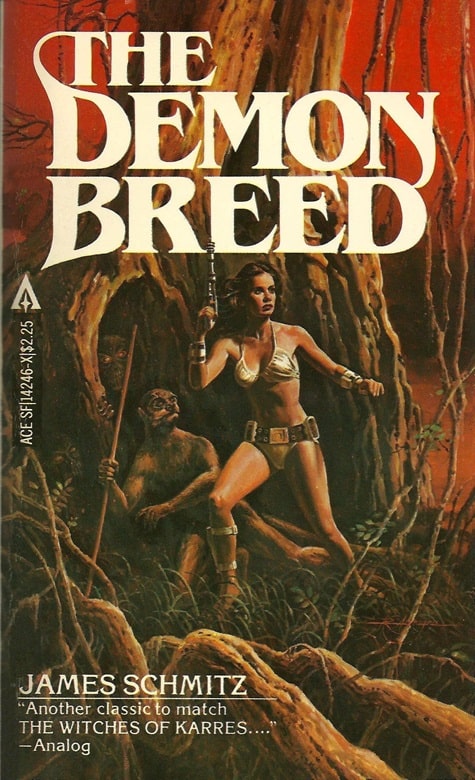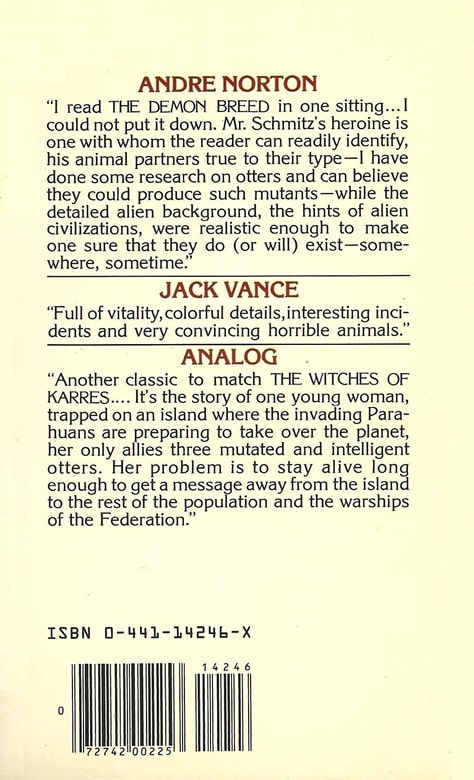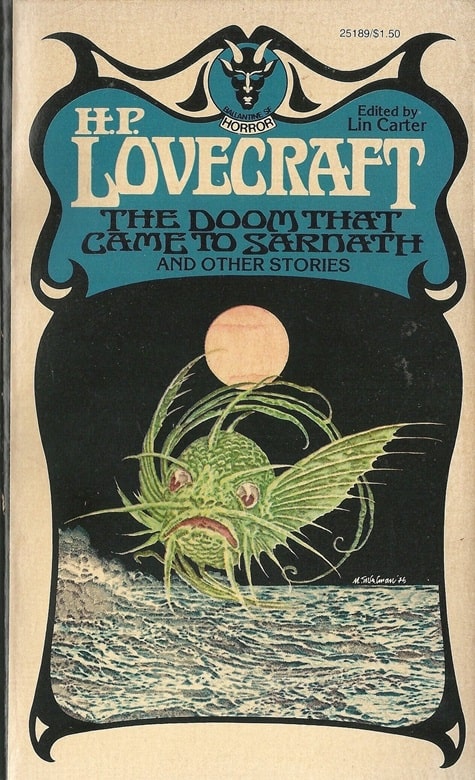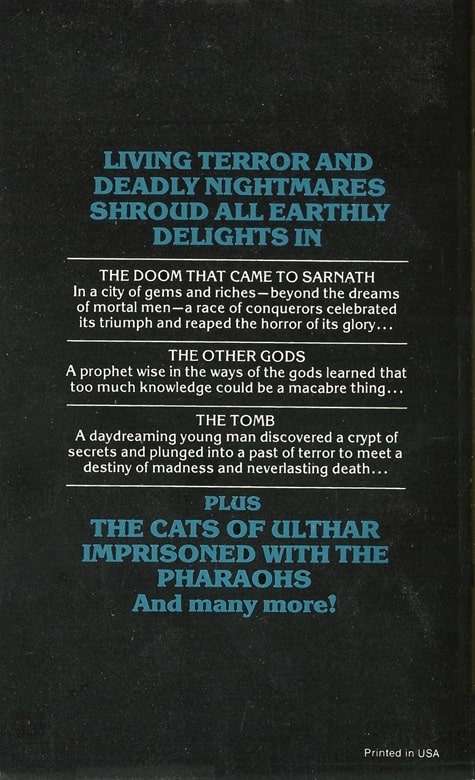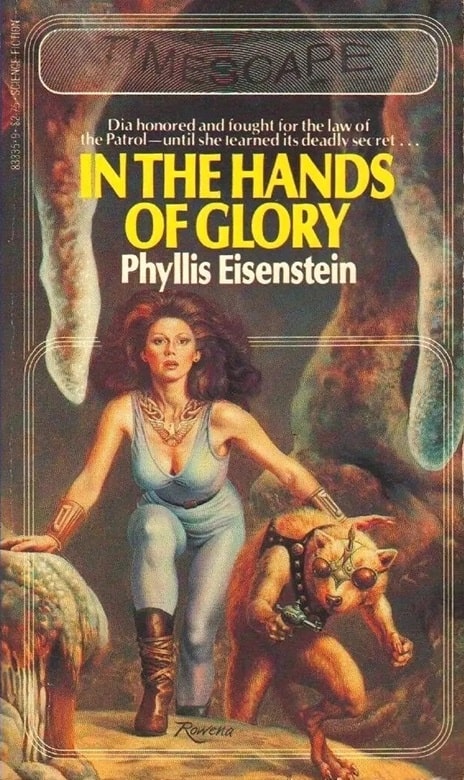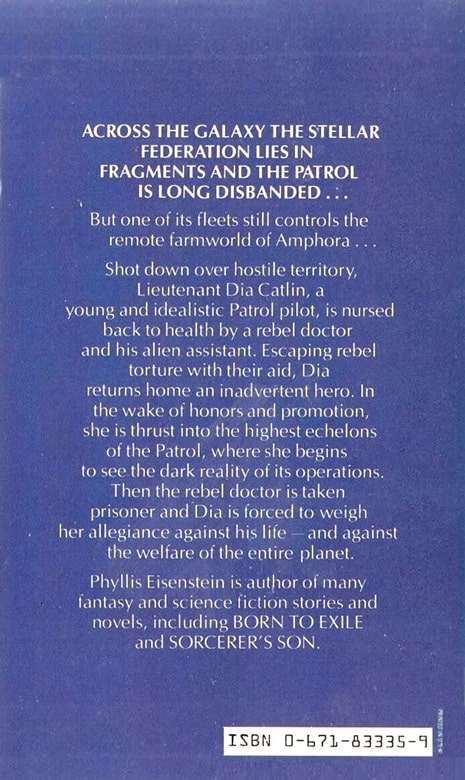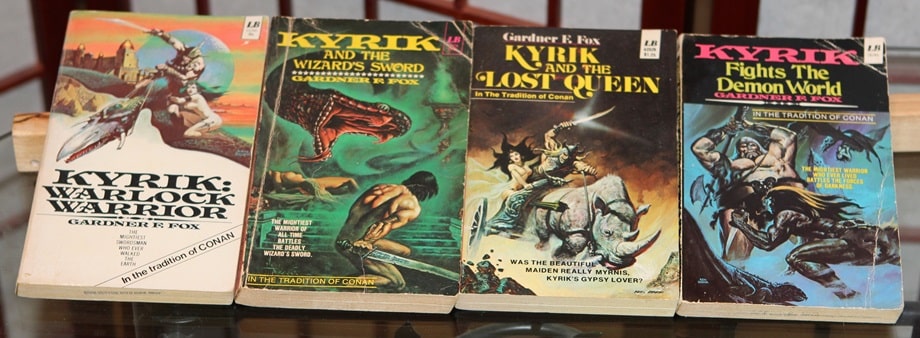Chess in Sword & Planet Fiction, Part II: Dray Prescot and Gor
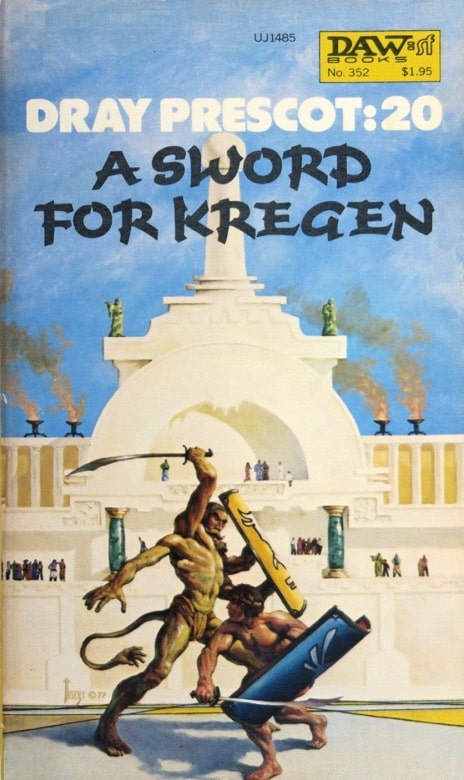 |
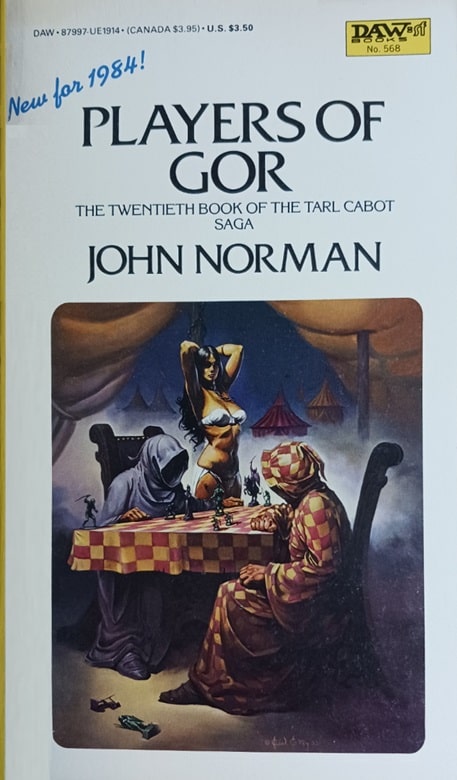 |
Dray Prescot 20: A Sword for Kregen (DAW, August 1979) and Players of Gor
(DAW Books, March 1984). Covers by Richard Hescox and Ken Kelly
My second exposure to Sword & Planet chess came in one of my favorite Sword & Planet books, which I’ve mentioned in this series already a couple of times. This was A Sword for Kregen, by Alan Burt Akers (aka Ken Bulmer). In this book, Dray Prescot, our earthman hero, becomes a living Jikaida piece in a battle to the death.
Jikaida is war game similar to chess, although considerably more complicated. There are several different variations played across the world of Kregen. It’s usually played on a board of much more than 100 squares of either black and white or blue and yellow. There are typically 36 pieces to a side, arranged in three ranks. I never tried to play Jikaida, though the rules are available. Here’s a link to an online description of the game.
John Norman also introduced an S&P version of chess in his Gor series. He called it Kaissa, which is clearly a nod to the Goddess of chess — Caissa — who first appeared in a 1527 poem by Hieronymus Vida telling the story of a chess game between the Gods Apollo and Mercury.
